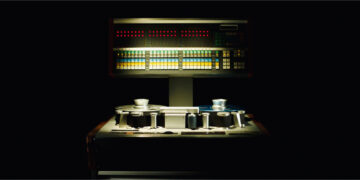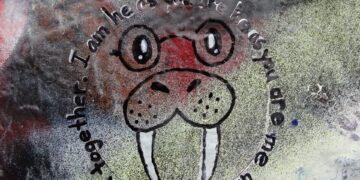“Gentlemen, I think you’ve got your first number one.”
Those were the (approximate) words of Beatles producer George Martin upon signing off the final take of Please Please Me in November 1962.
Some four months later, the so-called fifth Beatle was proved correct as his new proteges topped the charts for the first time with what was to become their trademark Merseybeat sound.
However, the success of the group’s first smash was far from inevitable.
‘A dirge’
The foursome’s original stab at the track in September, modelled on the style of Roy Orbison, was labelled a “dirge” by Martin, who insisted his new proteges speed it up.
Nine weeks later, when The Beatles laid down a second version at Abbey Road, their first single, Love Me Do, was failing to take the charts by storm, increasing the pressure to turn out a genuine hit.
With the tempo increased and the trademark harmonica added, they achieved this with Please Please Me – the first of 14 consecutive number ones for the group.
“George Martin’s contribution on Please Please Me was quite a big one, actually,” McCartney is reported to have said by Beatles Wiki.
“It was the first time that he actually ever showed that he could see beyond what we were offering him. Please Please Me was originally conceived as a Roy Orbison-type thing, you know. George Martin said, ‘Well, we’ll put the tempo up.’ He lifted the tempo and we saw that it was much better,” McCartney added.
John Lennon described Please Please Me as “my song totally” in The Playboy Interviews in 1980, billing his original composition as a “combination of Bing Crosby and Roy Orbison”.
“We changed the tempo a little bit, we altered the words slightly and we went over the idea of featuring the harmonica, just like we did on Love Me Do. By the time the session came round, we were so happy with the result, we couldn’t get it recorded fast enough,” he said in 1963 in Anthology.
Released on 11 January 1963, Please Please Me topped most UK charts around three weeks later.










